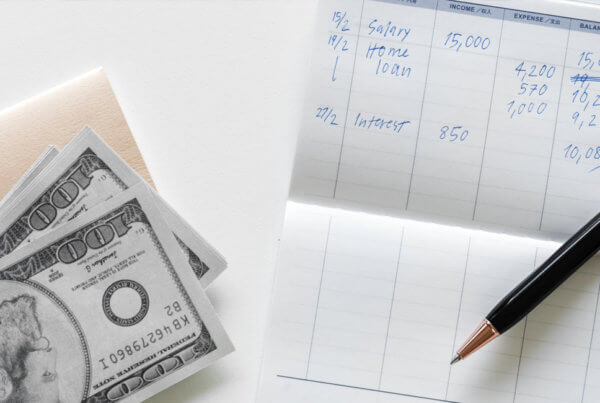Make sure your extra payments go to the principle and not the interest.
In order to pay off your loan sooner, you ought to make extra payments towards your principal balance. Most people are not aware that extra payments do not always go directly to the principal, but are applied to the interest instead.
Remember, the interest is the lenders profit. If you make a $250 payment on a $100 minimum due balance, where does the $150 go? For you, it makes sense to go directly towards the principal, which reduces your debt much quicker than paying interest. For the bank, they’d prefer to apply it towards the principal and balance just like a normal payment.
It looks like a very simple and straightforward process, but there are things you can do to make sure the extra payments go directly to the principal amount not interest.
How Are Extra Payments Applied to Your Loan?
When you make extra payments, your intention is to lower the original amount of debt. You can get rid of your debt sooner by doing this because no portion of your payment is removed for interest.
Some banks provide the option of applying the full amount to the principal of the loan or credit cards directly. Generally, in order to do this you need to call them directly to make a payment. This way you can verbally tell them you want the payment applied to the principle.
Are There any hidden Fees for Extra Payments or Principal Only Payments?
According to the terms of the loan, some banks charge a fee for extra payments on the loan. In other cases, they may charge on a principal only payment.
Though it might be frustrating to pay a fee, you will still save money on interest if you pay the loan or credit card off sooner. Interest payments for a few months will usually be less than a penalty of $1,000.
Choose the Best Strategy for Extra Payments
Now you understand the fees associated with extra payments and the way your payments are applied to the principal. With this information, you can now work on the best strategy to pay off your loan. You may need to pay just one large monthly payment on the loan in order to avoid fees and to pay it off as quickly as possible. If you are paid multiple times a month, you may need to put the money for payments into savings so you will not be tempted to spend it.
If no extra fee is charged by the bank, you can opt for paying the extra amount received by bonuses or tax returns. This strategy will also help you to avoid overspending your money so that you don’t fall in an over-debt situation.
Making the Last chunk of Payment
When it’s time to pay off your loan, you ought to contact your bank and enquire about the final payment figure. The interest accrued will change daily. The bank may quote the amount of payoff for a set period. You can make the extra payment personally if you wish to, or you can do the same by email or pay it online.
Four alternatives to paying extra towards your mortgage principal
Before you plan to make extra principal payments on your mortgage, it’s best to plan to take into account your overall financial goals. Assess your current financial position and future goals to identify the ideal use for your funds.
1. Clearing off credit card debt
If you’re having a tough time with credit card debt like many Americans, it’s more than likely you don’t have enough available cash to pay extra on your mortgage. Your credit card rates are going to be significantly higher than your home loan interest rate so it makes sense to tackle credit card debt first.
2. Refinance to an affordable rate
This can prove to save you more and still let you keep the extra money you’d pay toward your principal for other alternatives.
3. Build up an emergency fund
It is recommended to save for an emergency and unexpected costs. Without those financial reserves in place, you could put your extra money to put toward it if you’re making extra mortgage payments.
Conclusion.
Focusing on clearing just one debt at a time will enable you to channelize your extra payments and also to clear your debt faster because this will lower the principal on one loan and reduce the amount of interest payment. Paying off your highest interest loans first can help you in saving money.




